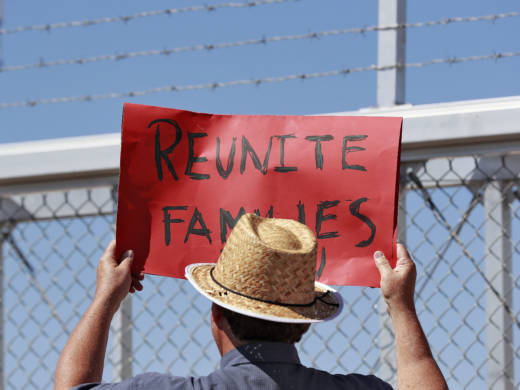A federal judge in San Diego has barred the separation of migrant children and ordered that those currently detained under the Trump administration's zero tolerance policy be reunited with families within 30 days.
The order, which came down late Tuesday, is the result of an American Civil Liberties Union lawsuit. It requires children younger than 5 who are detained in federally contracted shelters to be returned to their parents even sooner — within 14 days. Parents are entitled to speak with their children within 10 days, according to the ruling by the U.S. District Court for the Southern District of California.
"The unfortunate reality is that under the present system, migrant children are not accounted for with the same efficiency and accuracy as property," Judge Dana M. Sabraw said in the ruling.
"The facts set forth before the Court portray reactive governance responses to address a chaotic circumstance of the Government's own making," Sabraw said in a pointed ruling clearly aimed at the Trump administration's handling of the situation on the southern border, where more than 2,000 migrant children have been separated from their parents in recent weeks.
"They belie measured and ordered governance, which is central to the concept of due process enshrined in our Constitution," Sabraw said.

